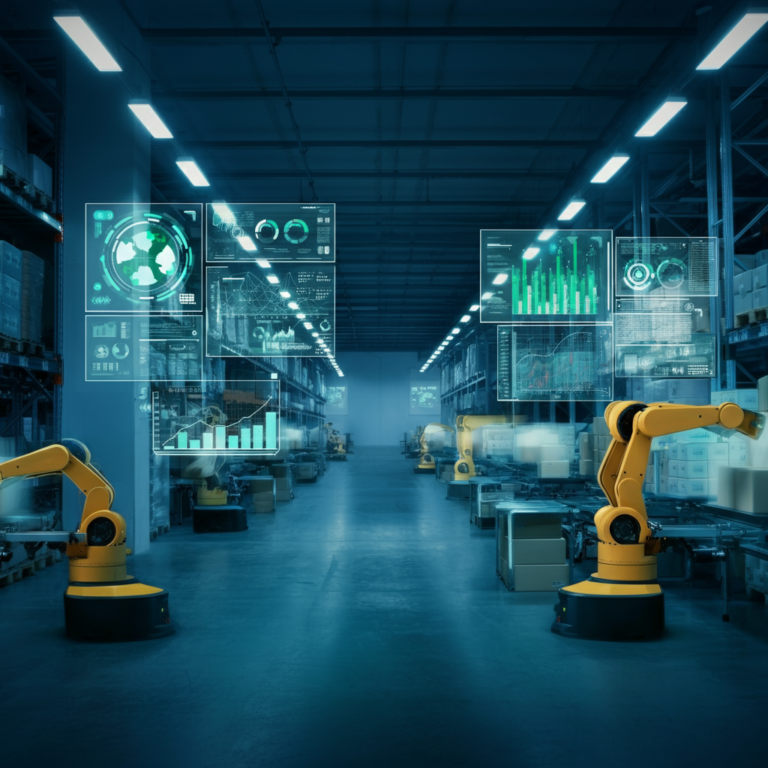Effective supply chain management is critical for business success in today’s interconnected world. From sourcing raw materials to delivering finished products, a seamless supply chain can be the difference between thriving and struggling in competitive markets. If you’re a business owner, understanding and optimizing your supply chain isn’t just an operational necessity—it’s a strategic advantage.
This blog explores the intricacies of supply chain management, its digital transformation, and the emerging trends reshaping the industry. Drawing on insights from ProcurementNation.com, we’ll also examine sustainable strategies and future trends to help you stay ahead.
What is Supply Chain Management, and Why Does It Matter?
Supply chain management (SCM) refers to the end-to-end coordination and oversight of a product’s flow—from raw material procurement to customer delivery. A well-executed supply chain ensures goods are delivered efficiently and cost-effectively, ensuring profitability and customer satisfaction.
Key Components of a Supply Chain
A typical supply chain comprises the following:
- Suppliers – Providers of raw materials or components.
- Manufacturing – The transformation of materials into finished goods.
- Logistics and Shipping – Movement of goods across the supply chain.
- Warehousing – Storage of products for timely distribution.
- Retail and Customers – End users or businesses purchasing finished products.
SCM Benefits for Businesses
- Operational Efficiency: Streamlined processes minimize delays and reduce costs.
- Risk Mitigation: Robust SCM minimizes disruptions caused by unforeseen challenges.
- Customer Satisfaction: A reliable supply chain ensures timely delivery, enhancing customer trust.
Top Challenges in Supply Chain Management
Despite its importance, SCM isn’t without challenges:
- Supply Chain Disruptions: Natural disasters, trade conflicts, and pandemics severely impact operations.
- Rising Costs: From fuel to raw materials, increasing costs strain profitability.
- Supplier Uncertainty: Dependence on external suppliers can lead to reliability issues.
With these challenges in mind, leveraging technology is no longer optional—it’s essential.
The Role of Digital Transformation in Supply Chains
Digital transformation is revolutionizing how businesses manage their supply chains. Leveraging cutting-edge technologies such as artificial intelligence (AI), big data, and blockchain, companies can optimize operations and stay competitive.
How Technology is Transforming SCM
- AI and Machine Learning: Predictive analytics forecast demand, allowing smarter inventory management. AI tools like ERP systems also streamline decision-making.
- IoT (Internet of Things): Smart sensors track goods in real-time, providing greater transparency and reducing loss.
- Blockchain: Enhances security and traceability, ensuring authenticity at every stage of the supply chain.
Real-Life Case Studies
- Walmart’s Blockchain Adoption: By implementing blockchain technology, Walmart has significantly improved traceability in its food supply chain. This ensures faster recalls and builds customer confidence.
- Amazon’s Warehouse Automation: Through AI-driven robotics, Amazon has revolutionized warehousing and order fulfillment, reducing costs and increasing delivery speed.
Why Sustainable Supply Chains Are the Future
Sustainability is no longer a buzzword—it’s a business imperative. Companies are increasingly being held accountable for their environmental and social impact, and sustainable supply chains are at the core of this transformation.
Strategies for Building a Sustainable Supply Chain
- Green Procurement: Sourcing materials from eco-friendly suppliers reduces the carbon footprint.
- Energy-Efficient Logistics: Reducing transportation emissions through route optimization or fuel-efficient vehicles.
- Waste Reduction: Minimizing waste through recycling programs and efficient resource use.
Benefits of Sustainability
- Cost Savings: Efficient use of resources results in long-term savings.
- Improved Brand Reputation: Sustainability initiatives resonate with environmentally-conscious consumers.
- Regulatory Compliance: Helps meet increasingly stringent government regulations on sustainability.
ProcurementNation.com’s Sustainability Resources
ProcurementNation.com offers actionable insights on achieving sustainable supply chains, connecting businesses with eco-conscious suppliers and solutions.
The Future of Supply Chain Management
The fast-evolving landscape of SCM presents significant opportunities for businesses ready to adapt.
Emerging Trends in Supply Chains
- Advanced Robotics: Robots will increasingly automate tasks like packaging and inventory sorting, reducing human error and labor costs.
- Digital Twins: Companies will use virtual models of supply chain networks to simulate and optimize real-world operations.
Preparing Your Business for the Future
- Continuously evaluate supply chain processes to uncover inefficiencies.
- Invest in technologies, such as AI and IoT, that align with your business goals.
- Consider partnerships with platforms like ProcurementNation.com to stay updated on industry trends.
Supply Chain Excellence Starts Here
Supply chain management is no longer just about cost control; it’s about innovation, efficiency, and sustainability. Amid changing global dynamics, platforms like ProcurementNation.com are valuable resources for navigating this complex field.
